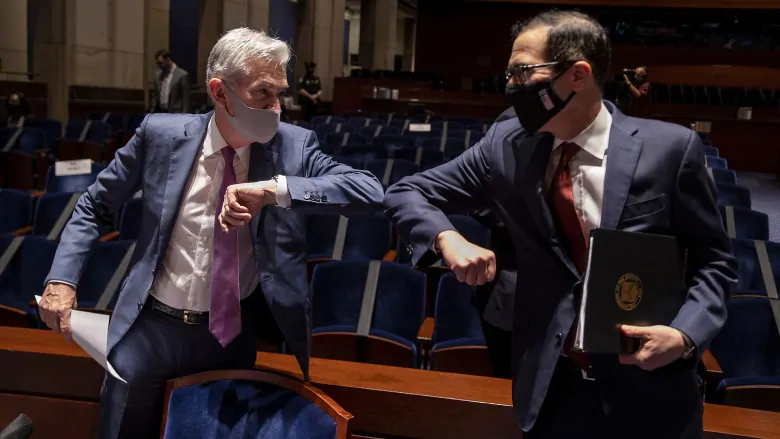Goldman Sachs warns that the U.S. dollar’s place as the world reserve currency faces threat as the American economy is weakened. Can Federal Reserve chair Jerome Powell maintain his promise not to even think about thinking about hiking rates, Don PIttis asks.

No one will be surprised if Federal Reserve chair Jerome Powell uses part of his news conference on Wednesday to scoff at the idea of the U.S. dollar losing its place as the world reserve currency.
But even as he scoffs, the comments this week by strategists at global finance giant Goldman Sachs that “real concerns around the longevity of the U.S. dollar as a reserve currency have started to emerge,” will certainly be in the minds of everyone listening to the Fed’s latest plans.
Predictions of the mighty U.S. dollar’s fall from its place as the ultimate measure of value are nothing new.
“Gold bugs” — the slightly disrespectful term for people convinced the yellow metal is the only truly safe investment — roll out an attack on the U.S. dollar’s safety every few years.
Deposing king dollar
The euro has been an aspiring candidate, but has had many troubles of its own. Countries that don’t get along with the U.S., including Iran, have complained about the absurdity of having to sell their oil to third parties priced in U.S. dollars.
After the global financial meltdown of 2008, China’s then central banker, Zhou Xiaochuan, criticized the use of a single country’s currency for a world standard, calling it a historical anomaly.
“The crisis again calls for creative reform of the existing international monetary system toward an international reserve currency with a stable value, rule-based issuance and manageable supply,” wrote Zhou.
But the comments from New York bankers Goldman Sachs just as gold is hitting new highs and the greenback is hitting new lows ar

